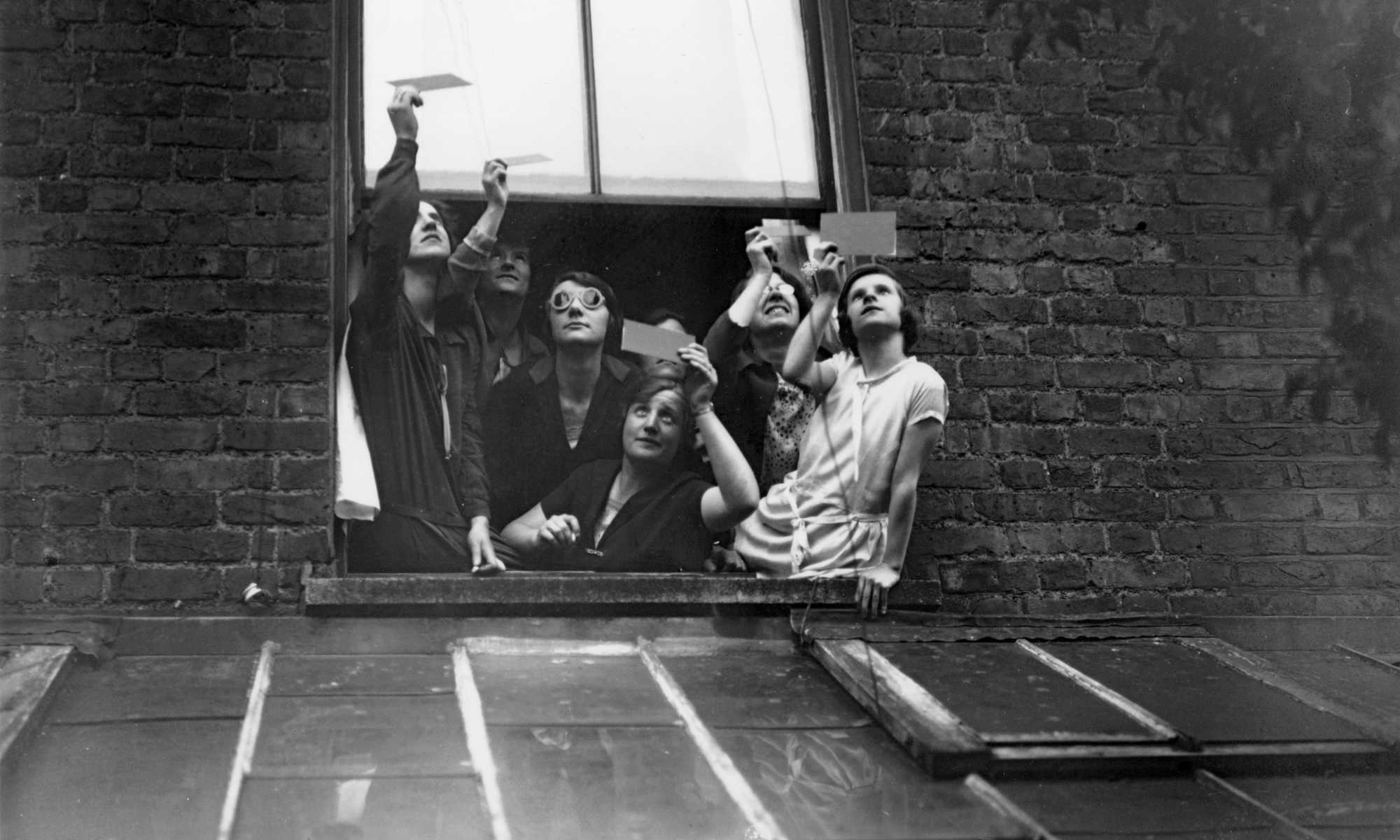Equitable access to internships helps University of Rochester students preview their futures.
Brian Ganeles ’23 was interested in a career in medicine when he entered the University of Rochester. An internship at Evanston Hospital in Evanston, Illinois, this past summer reinforced that goal and is likely to help him reach it.
“I was able to work directly with physicians and learn about each role on a health care team, through conversations and shadowing,” the brain and cognitive sciences major from Albany, New York, says.
Finding the best internship for you
University of Rochester undergraduates interested in finding an internship can speak with an advisor in the Greene Career Center. They will help you explore and clarify your interests and skills, and can answer your questions about internships and other career-related opportunities.
Ganeles was one of 92 Rochester undergraduates who pursued summer internships in 2022 that were funded by the Gwen M. Greene Center for Career Education and Connections. The center distributed around $240,000 for the last fiscal year, through donations from alumni and friends of the University. Since many coveted internships come with limited or no compensation and are located in some of the most expensive regions of the nation, the funding is critical to ensuring all qualified students can meet their travel, food, lodging, and living expenses.
“The funding helped me afford housing in Chicago,” says Ganeles, who worked with a team specializing in bariatric surgery, collecting data on the state of patients’ health before, during, and after surgery. “I was able to buy food and take public transportation throughout the city. And I was able to spend more time on my days off shadowing doctors and exploring my professional interests in health care as opposed to working a second job.”
Jodyi Wren, interim executive director for the Greene Center, says internship funding provides the “financial bridge” that makes experiences like Ganeles’s possible.
“Without this funding from our generous donors, students would miss out on these pivotal experiences that not only build skills employers and graduate school are looking for, but also strengthen their social capital,” she says.
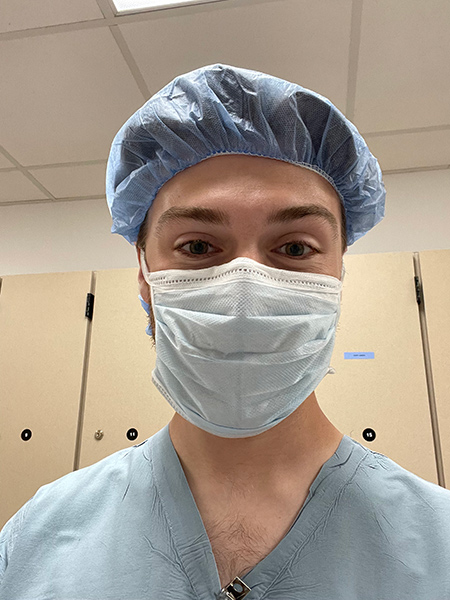
Why internships are important
According to Wren, “Internships provide incredible value to a student’s academic journey. They help students explore their academic interests in real world environments, gauge their desire to pursue a career in the field, build networking connections, develop and refine skills, and help launch them to whatever’s next after Rochester.”
An internship is a job offered to a student or trainee, sometimes without pay, for a limited time. It gives the person a chance to gain real-life experience in a field of interest—and in many cases, turn that internship into a full-time job.
Part-time internships are available year-round, giving a college student the chance to pursue an interest while also taking classes. Full-time internships are more common in the summer and more likely to offer pay for services (though not always). Internships allow a student to gain insight into a field of interest, create a professional network, and build a strong resume.
NACE, the National Association of College Employers, recently released the results of its 2022 student survey of more than 16,000 undergraduates from four-year colleges. Joshua Kahn is the associate director of research at NACE, a nonprofit professional organization, or college career services, recruiting practitioners, and others who wish to hire those with college degrees. He says 61 percent of college seniors in 2022 had taken an internship, and of those, half were paid. Paid interns were offered on average of 1.6 full-time job offers compared to 0.95 for unpaid interns and .77 for students who did not take internships. (After a lull in job offers due to the COVID-19 pandemic, NACE reported a 31 percent hiring increase for college graduates from the Class of 2022.)
Kahn says college internships are a “massively important” step toward landing a dream job.
“First and most obvious is skill development and an introduction to the workplace,” he says. “Students report they’re able to learn things they’re not able to learn in a classroom. And it’s also a chance for them to determine if this is really the career they want to pursue.”
Kahn says it’s “very impressive” that Rochester funded 92 internships this past summer. “It’s amazing, really,” he says. “More than 35 percent of universities have funding in place for low or underpaid internships. We want more colleges to do that, and for funding to come from colleges and universities, and not just alumni and donors. Many students simply can’t afford to take an unpaid internship.”
Rochester students thrive as interns
The Rochester undergraduates who received funding from the Greene Center for summer internships spanned a diversity of fields.
Grace Stensland ’23, for example, interned in Burbank, California, at Sound Rebels, an audio post-production company, under Emmy Award–winning supervising sound editor Rob McIntyre. A film and media studies major from Syracuse, New York, Stensland’s duties included sound editorial and design for animated television episodes airing on Netflix and Nickelodeon—including her favorite animated show, Netflix’s Inside Job. “In a few months’ time, Inside Job went from a show I enjoyed to one with a world I helped bring to life,” she says. “The day season two drops will be one of the most gratifying of my young career and the best binge-watch of all time.”
Stensland has worked at the Greene Center for two years and says, “essentially everything I’ve been learning has come into play—networking, professional communication, portfolio development, interviewing, and more.” Her internship was funded by a Class of 1981 endowment which provides financial support for undergraduates who secure unpaid or low-paying internships. “I wouldn’t have been able to do this otherwise,” she says. “Los Angeles is infamous for its astronomical cost of living,” she says. “I’m very fortunate.”
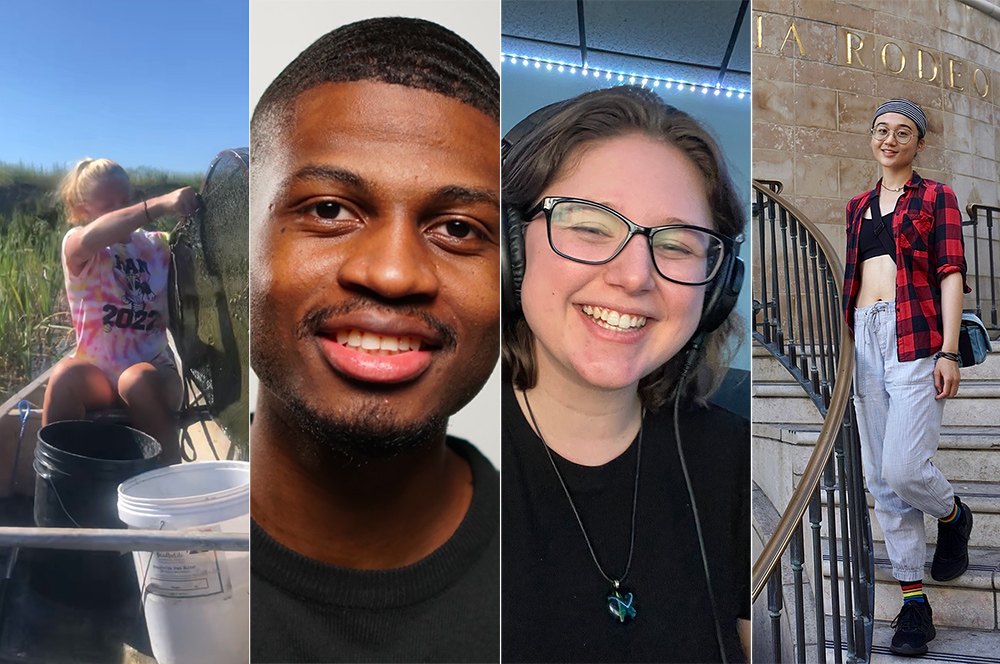
A few miles south in Los Angeles, Panzhen Wu ’22, ’23 (T5) secured an internship at the Arlook Group, a creative management company specializing in talent management, TV and film production, and brand consulting. Her main duty was reviewing scripts the company receives. “The interns were given a lot of flexibility and trust to evaluate a script based on our own preferences and opinions,” says Wu, a Shenzhen, China, native who majored in music and mathematics as an undergraduate. “I felt empowered and gained a lot of confidence.”
Because her internship was unpaid, funding from the Greene Center proved critical. It covered housing for six weeks, a round-trip ticket from Rochester to Los Angeles, and money for meals. “Because of it, I was financially able to explore other opportunities in Los Angeles,” she says. “I worked three days as a crew member on the set of a film, which gave me a more complete understanding of film as both an artwork and a business.”
California wasn’t the only far-flung state to host Rochester students for internships. Sophie Sweet ’24, a chemical engineering major from Westbrook, Maine, interned in Shepherd, Montana at Floating Island International. The organization makes floating islands created from recycled materials. Sweet’s jobs ranged from property stewardship and writing grant proposals, to research on new nanobubble technology and harvesting minnows into Fish Fry Lake, once an algae-filled pond but now a vibrant, clean body of water filled with a variety of fish.
“It’s a small business, so I got to do a lot while I was there,” Sweet says. “My internship forced me to be resourceful and adaptive because I had to work with what was on the property.”
Other students found internships that let them stay in Rochester and work remotely.
Daniel Semphere ’23 is a film and media studies major from Lilongwe, Malawi, in Africa. Since May 2022, he has worked remotely as an intern for Syron Design, a Vermont-based corporate branding and marketing firm, helping to create video content.
Semphere has maintained this job into the school year and says, “I have frequently taken advantage of the Career Center counselors for their advice.” His remote internship is part of a growing trend that has accelerated since COVID-19 spread worldwide in 2020. According to the NACE survey, nearly half of graduating seniors expressed a preference to work in a hybrid setting—a mix of in-person with remote work.
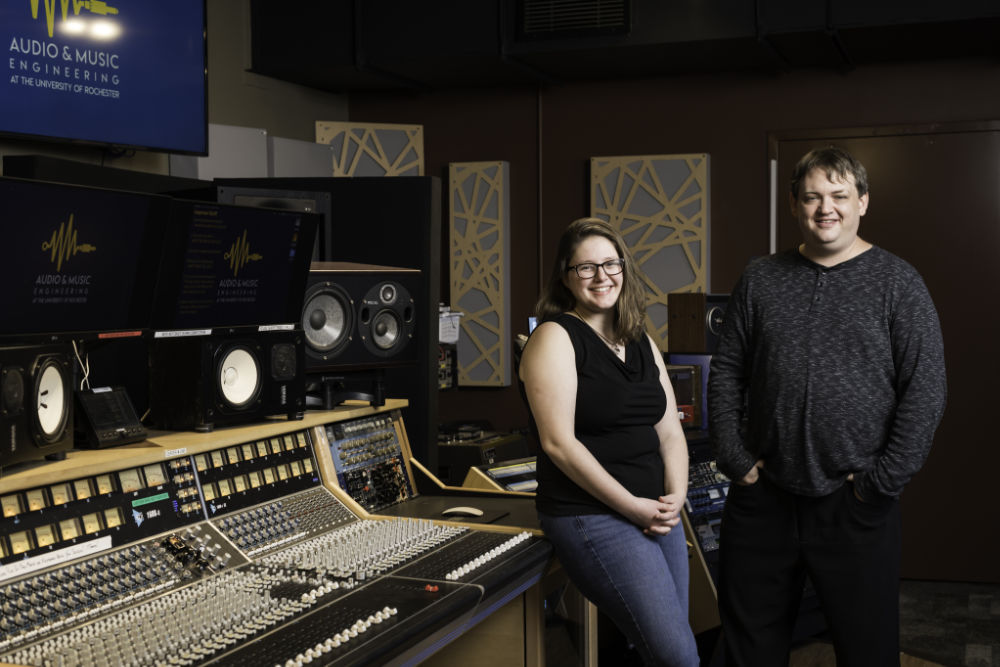
Are internships worth it?
Many Rochester students report the benefits of internship experiences on their college education and personal growth. Some have even turned their internships into full-time positions after graduation.
Casey Ryu ’22 interned for Zoom in the summer of 2021 and then accepted a job on the company’s social impact operations team. Melissa Bucklin ’20 interned at Rochester’s Medical Center as an emergency department research associate and then was hired full time. She has since started graduate school to become a physician’s assistant. “Getting involved with health-related opportunities at Strong Memorial Hospital was one of the most valuable parts of being an undergrad at Rochester,” Bucklin says. “I learned so much at the hospital.”
Shoham Shitrit ’22 interned at Microsoft in Seattle the summer before his senior year and then accepted a full-time position on the content management system team after graduating. The team stores articles, documents, images, and videos for numerous websites, including msn.com, xbox.com, and fedex.com.
“My internship was extremely valuable to me, both from skills gained and learning what it’s really like to be a software engineer—the good, the bad, and the ugly,” says Shitrit, a Boston native who majored in computer science at Rochester. “I learned what it takes to write code that affects millions as well as communicating with teammates about issues and achievements.”
Students may encounter some surprises as they go about applying for internships. Shitrit says he was turned down for every internship he applied for except the one at the tech giant. Now, he’s building a career there.
“My advice to undergraduates is to try it,” he says. “Being a student gives you a unique chance to try different things in order to form long-term career decisions. Nothing beats the real thing, actually doing what you’re being trained to do in school. The process can be arduous, but be persistent. No matter how many companies say ‘no’, remember you only need one company to say ‘yes.’’’
Read more
 How to get a job after college: 5 tips for juniors and seniors
How to get a job after college: 5 tips for juniors and seniors
Rochester’s Jodyi Wren, a career education professional with more than 15 years of experience, offers advice for college students and graduates.
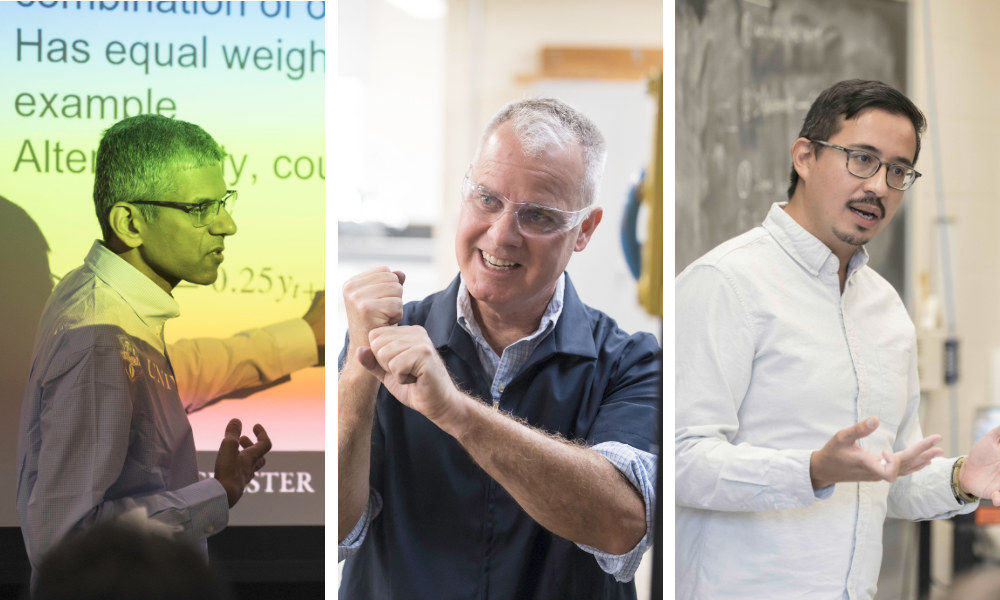 Three professors honored for undergraduate teaching innovations
Three professors honored for undergraduate teaching innovations
Ajay Anand, Christopher Muir, and Pablo Sierra Silva have reshaped departmental programs to focus on experiential learning.
 Why free speech—and especially disagreement—matters on college campuses
Why free speech—and especially disagreement—matters on college campuses
A Rochester political scientist urges greater tolerance for the ‘clash of ideas’ on American campuses.




